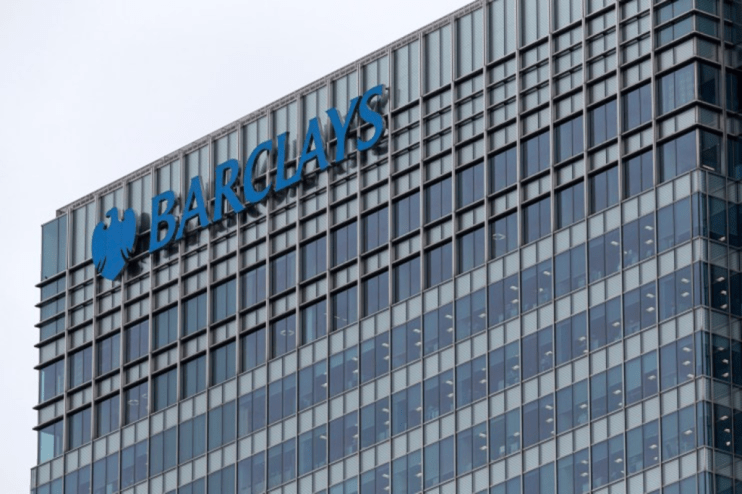Barclays shares hit two-year high after profit beats estimates, but investment bank struggles

Barclays has reported an 11 per cent drop in profit as the boost from higher interest rates fades and its investment bank struggles to compete with its Wall Street rivals.
However, the firm’s stock price soared as much as eight per cent on Thursday afternoon to its highest level since February 2022 on its earnings beating analysts’ estimates.
The Big Four bank reported a profit before tax of £2.28bn for the first three months of 2024, down from £2.60bn in the same period last year. A company-compiled analyst consensus had expected a figure of £2.20bn.
Its group income fell four per cent year-on-year to £6.95bn, including a seven per cent drop at its UK retail and commercial banking business partly driven by subdued mortgage lending amid lower market demand. Barclays’ loan book shrank by one per cent during the quarter to £200.8bn.
Meanwhile, its deposits fell two per cent to £237.2bn over the three months as customers were tempted by higher savings rates elsewhere.
UK banks posted record profits last year on the back of interest rate hikes from the Bank of England, but their margins have narrowed into 2024 as intense competition among lenders has forced them to offer better deals, with households under pressure less inclined to borrow money. The central bank’s base rate has likely peaked and is expected to be cut multiple times this year.
Barclays’ net interest income – the gap between what it earns from interest on loans and pays out to savers – fell to £3.07bn in the first quarter from £3.14bn at the end of last year, but was £0.2bn higher quarter-on-quarter.
Following disappointing economic data on both sides of the Atlantic in recent weeks, traders have pared their bets on UK base rate cuts. Markets are currently pricing in just two cuts in 2024, down from seven at the start of 2024. As a result, lenders could see another boost from higher-for-longer rates this year.
Barclays’ earnings were dragged down last year by a weaker performance from its investment bank, which some investors have argued is a volatile revenue stream that it should ditch entirely. It is the only domestic UK bank that still has a global dealmaking arm, dwarfed by Wall Street rivals like JPMorgan Chase and Goldman Sachs.
Unlike the biggest US banks, Barclays’ investment banking and trading operations did not receive a major boost last quarter from a rebound in global dealmaking and capital markets activity. The business’ income came in at £3.33bn for the three months, down from £3.57bn in the previous quarter, as a 25 per cent rise in income from equities trading was more than offset by a 21 per cent drop in fixed income trading.
Barclays’s profit was hit in the final three months of 2023 by £927m in operating costs tied to its biggest restructuring since the financial crisis, designed to save £2bn in costs and return £10bn to shareholders by 2026. It slashed 5,000 jobs globally last year as part of the cost-cutting drive.
Chief executive CS Venkatakrishnan commented: “We are focused on disciplined execution of the plan that we presented at our investor update on 20 February. We have now announced the sale of our performing Italian mortgage book and are investing in our higher returning UK consumer businesses, including through the expected completion of the Tesco Bank acquisition in the fourth quarter.”
Like last quarter, Barclays made no provision or capital plans related to potential costs from the Financial Conduct Authority’s (FCA) review into now-banned motor finance commission arrangements. Analysts have said the probe could cost the bank, which performed auto lending between 2010 and late 2019, around £350m in potential compensation payouts.
Barclays said it was “co-operating fully with the FCA’s skilled person review, the outcome of which is unknown, including any potential financial impact”, with the regulator due to set out its next steps in September.
The bank recently launched a legal challenge against the Financial Ombudsman Service over one of the “test cases” highlighted by the FCA when it announced its review in January.
Updates throughout